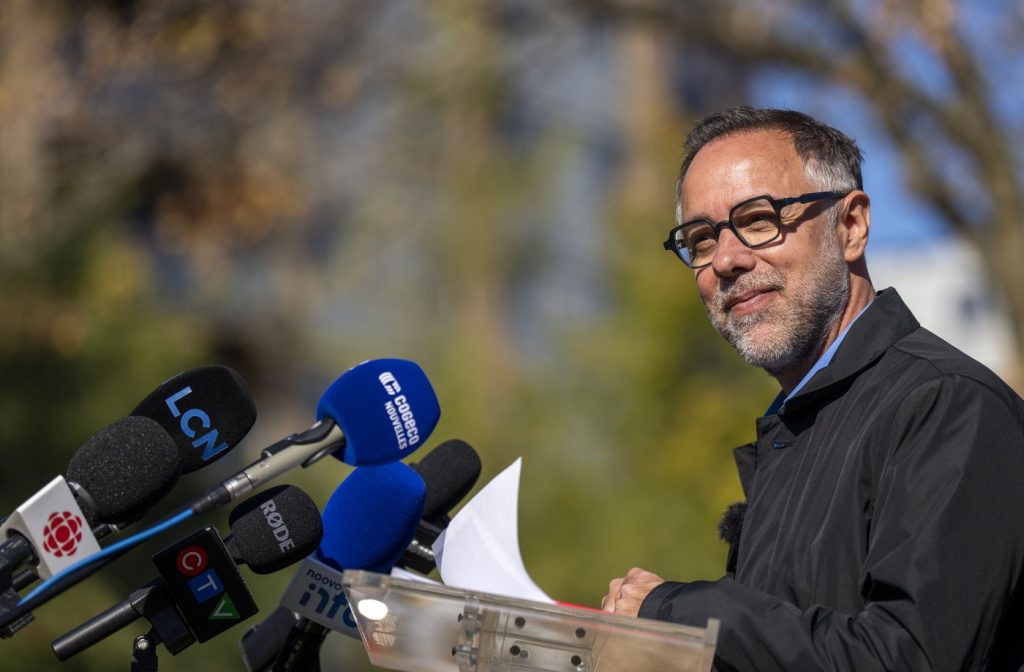MONTREAL — In a recent debate on Radio-Canada, Soraya Martinez Ferrada, a leading candidate for mayor of Montreal, revived comments made over two years ago by a borough mayor who controversially compared a car to a refrigerator. Laurence Lavigne Lalonde, the borough mayor, stated during a 2023 council meeting that the City of Montreal has no obligation to ensure free parking in front of residents' homes, just as it does not provide free public storage for appliances. She argued that public space should be shared, even if it involves sacrificing parking spaces for bike lanes and pedestrian-friendly initiatives.
Martinez Ferrada, in a pointed critique directed at her main rival, Luc Rabouin, leader of Lavigne Lalonde’s party, dismissed the fridge comparison, asserting that the city should not eliminate parking without proper community consultation for the development of bike paths. This debate highlights a persistent issue in Montreal politics: how far the city should go in accommodating bike lanes and pedestrian-friendly streets. Martinez Ferrada's attack also reflects a broader discontent among residents over various urban challenges that have accumulated during the eight years that Rabouin's party, Projet Montréal, has been in power.
The upcoming election on November 2, 2025, comes amid pressing issues such as homelessness and housing affordability. Rabouin aims for Montreal to become the most affordable metropolis in North America, while Martinez Ferrada is committed to addressing the rising number of homeless encampments over the next four years. Political science professor Danielle Pilette from Université du Québec à Montréal emphasizes that many candidates' priorities will require funding from federal and provincial governments. She remarked that the City of Montreal has limited control over housing costs and homelessness, both of which demand resources and support from higher levels of government.
A Segma research survey conducted for Radio-Canada on October 16 shows Martinez Ferrada ahead in voter intentions with 26%, followed by Rabouin at 18%. However, a significant 37% of voters remain undecided. Pilette suggests that the next mayor will confront a tight municipal budget and a decentralized governance structure that complicates city management. She identifies a sentiment of fatigue and discouragement among voters, contrasting it with the optimism that characterized the 2017 election when Valérie Plante, representing Projet Montréal, came into power promising impactful change for environmentally friendly urban mobility.
Recently, however, Plante has faced criticism for her policies promoting car-free streets and extensive bike paths, alongside rising housing costs and challenges associated with the homeless population. According to a recent Léger poll for Postmedia, 55% of respondents expressed dissatisfaction with her administration. Martinez Ferrada, a former federal Liberal cabinet minister, positions herself as a candidate for change, appealing to those who feel the current administration has overreached regarding bike lanes. She remarked, “Citizens say, ‘I’m not against bike lanes, but can they take into account the impact they have on my life?’”
During the debate, Martinez Ferrada highlighted the negative effects of bike projects on specific groups, including business owners, seniors, and people with disabilities. She promised to conduct a thorough assessment of existing bike paths within the first 100 days of her potential administration, suggesting that some bike paths may be removed to restore parking. Although Rabouin continues to strongly support the bike paths that have distinguished Montreal as a leader in North America’s cycling infrastructure, he has also moderated some of Plante's policies, notably a controversial plan to restrict car traffic in Mount Royal Park, which Martinez Ferrada has pledged to eliminate.
Despite their differences, both candidates aim to tackle challenges related to affordable housing. Rabouin’s approach focuses on promoting the creation of non-market housing through municipal bylaws and measures, while Martinez Ferrada highlights the need for a comprehensive strategy to address homelessness. She intends to triple the city’s budget for homelessness and aims to develop at least 2,000 transitional housing units, stating her goal is to allow individuals to remain in encampments while they transition to stable housing.
Other candidates in the mayoral race include businessman Gilbert Thibodeau, municipal councillor Craig Sauvé, and consultant Jean-François Kacou. With Montreal's municipal elections on the horizon, candidates will continue to navigate these pressing urban issues as they seek voter support.











